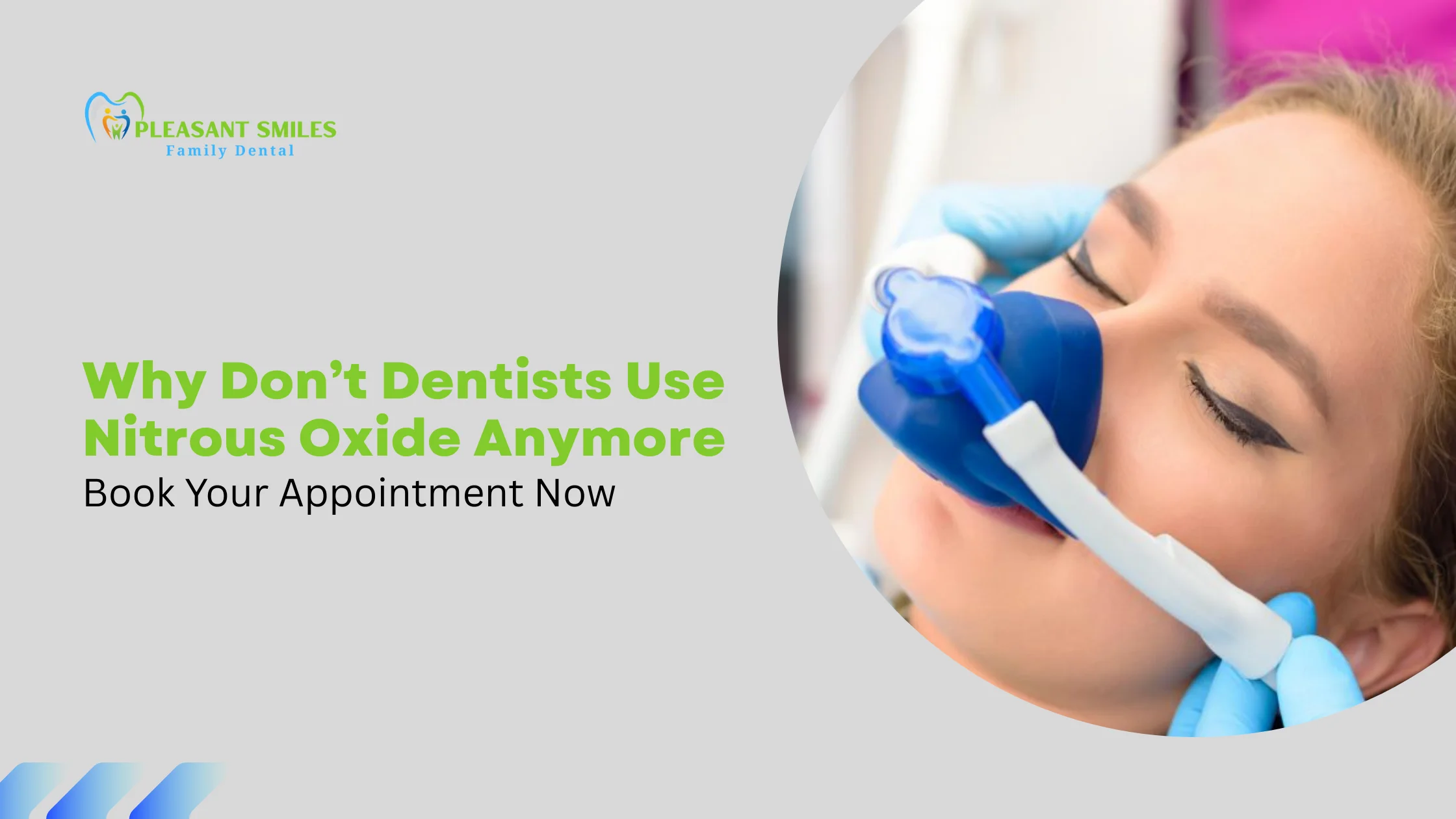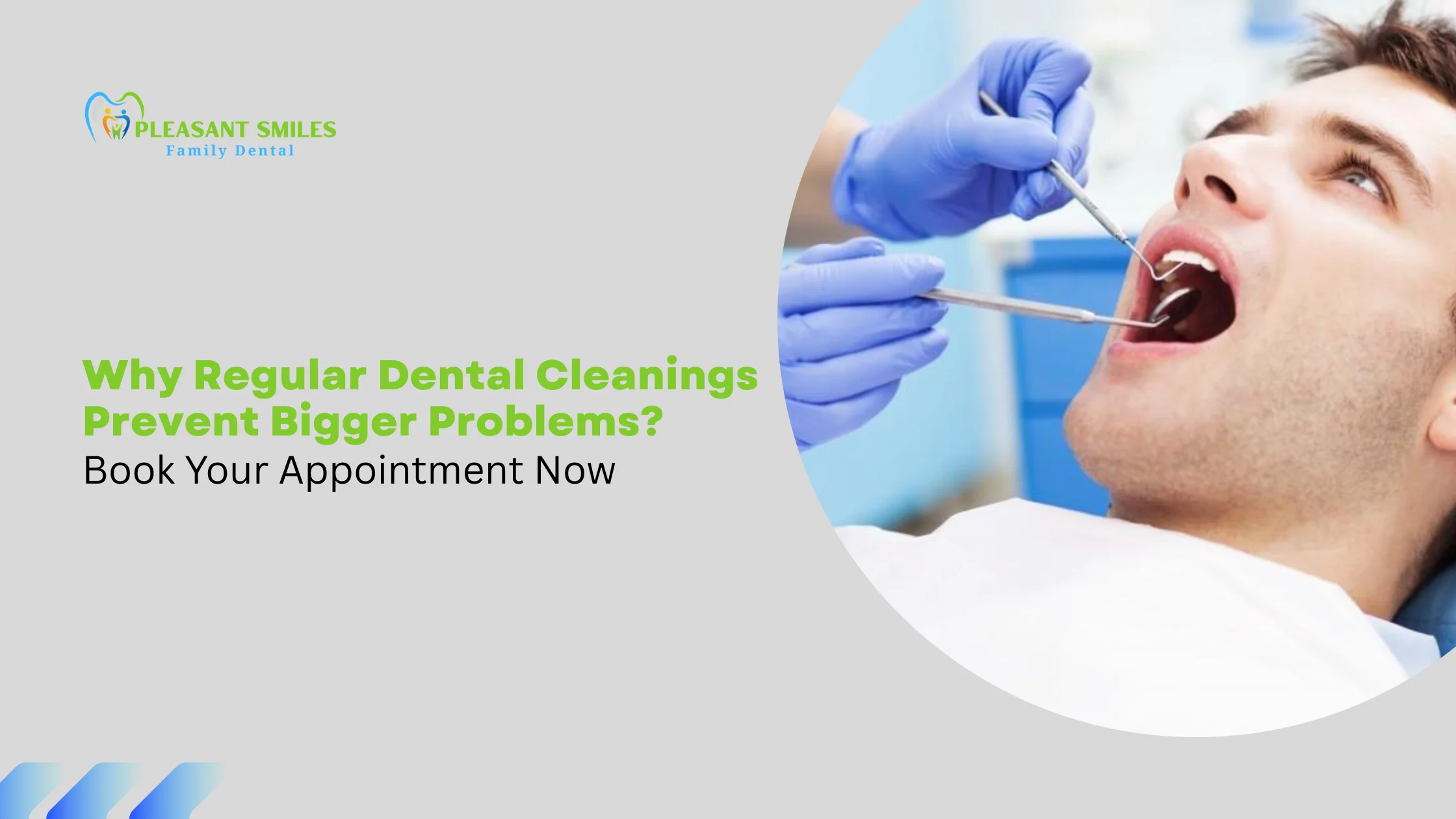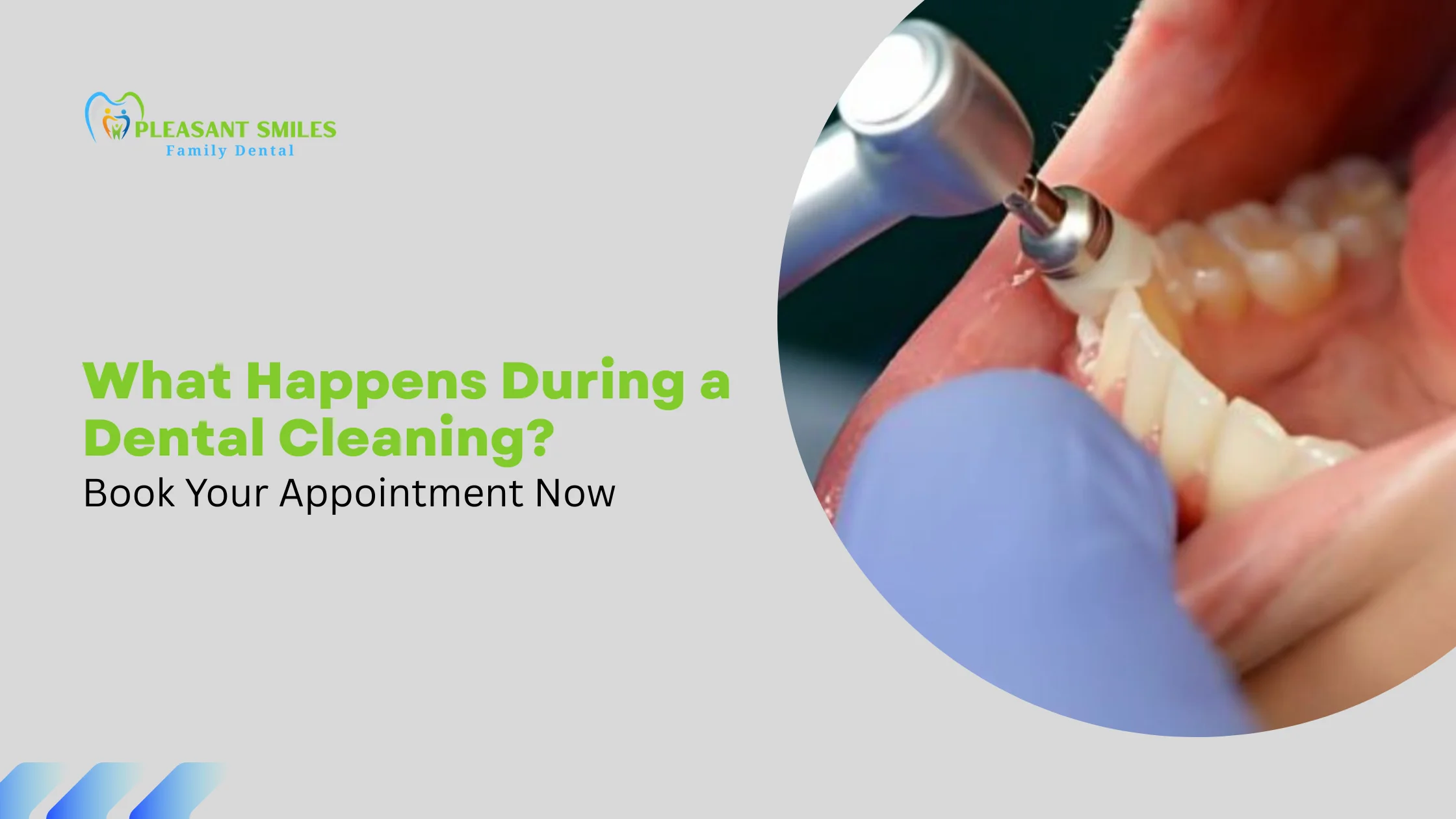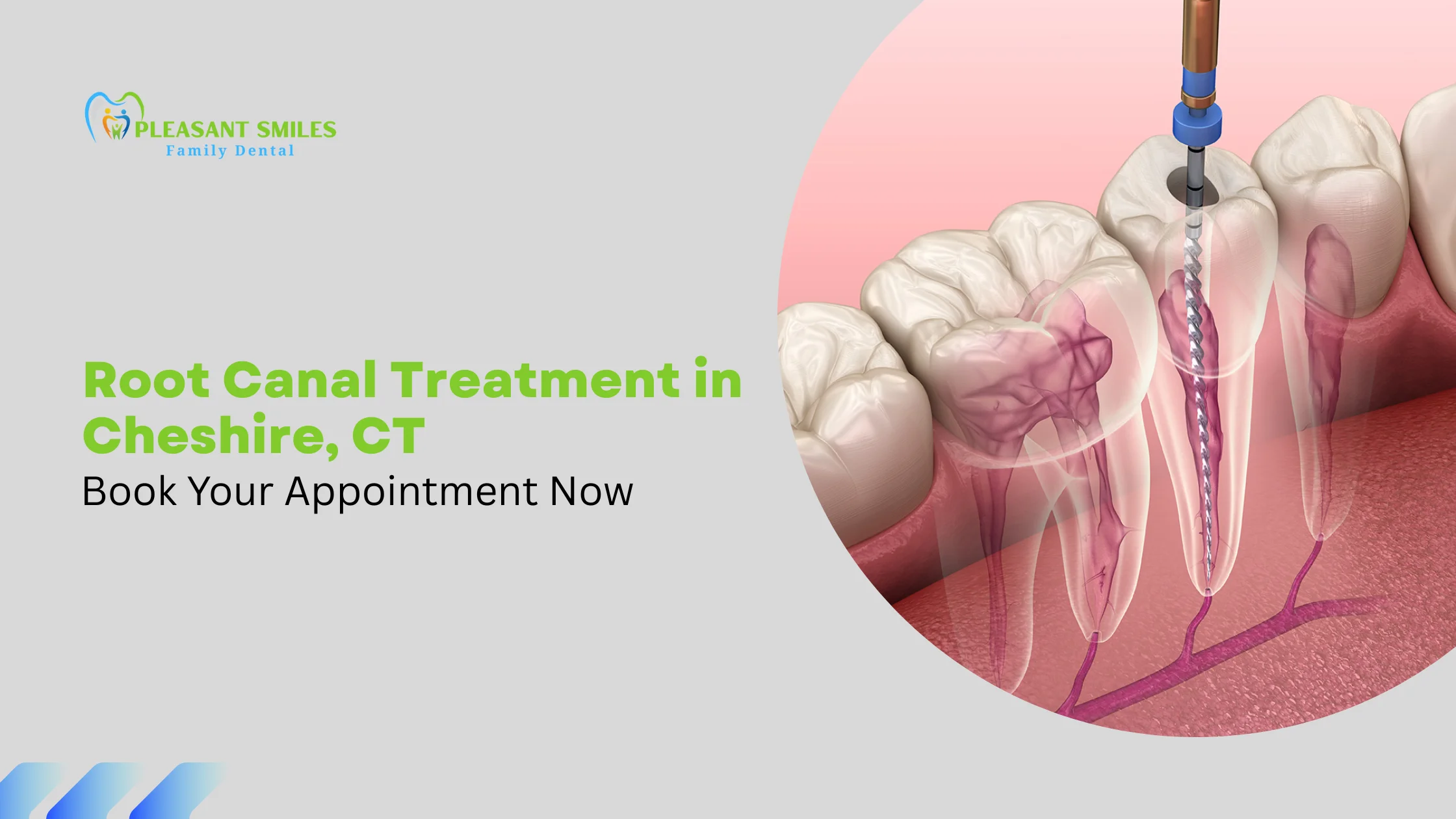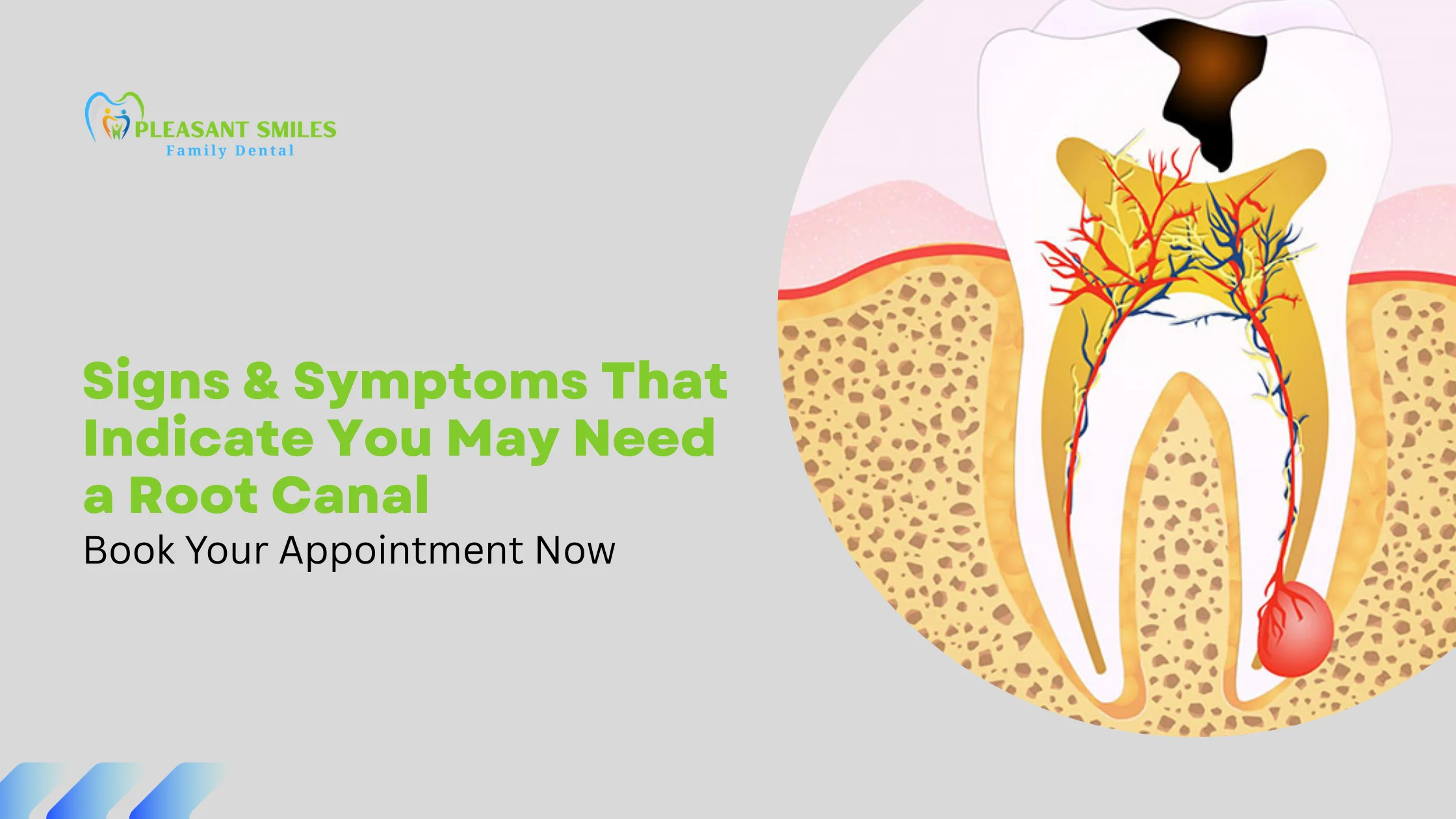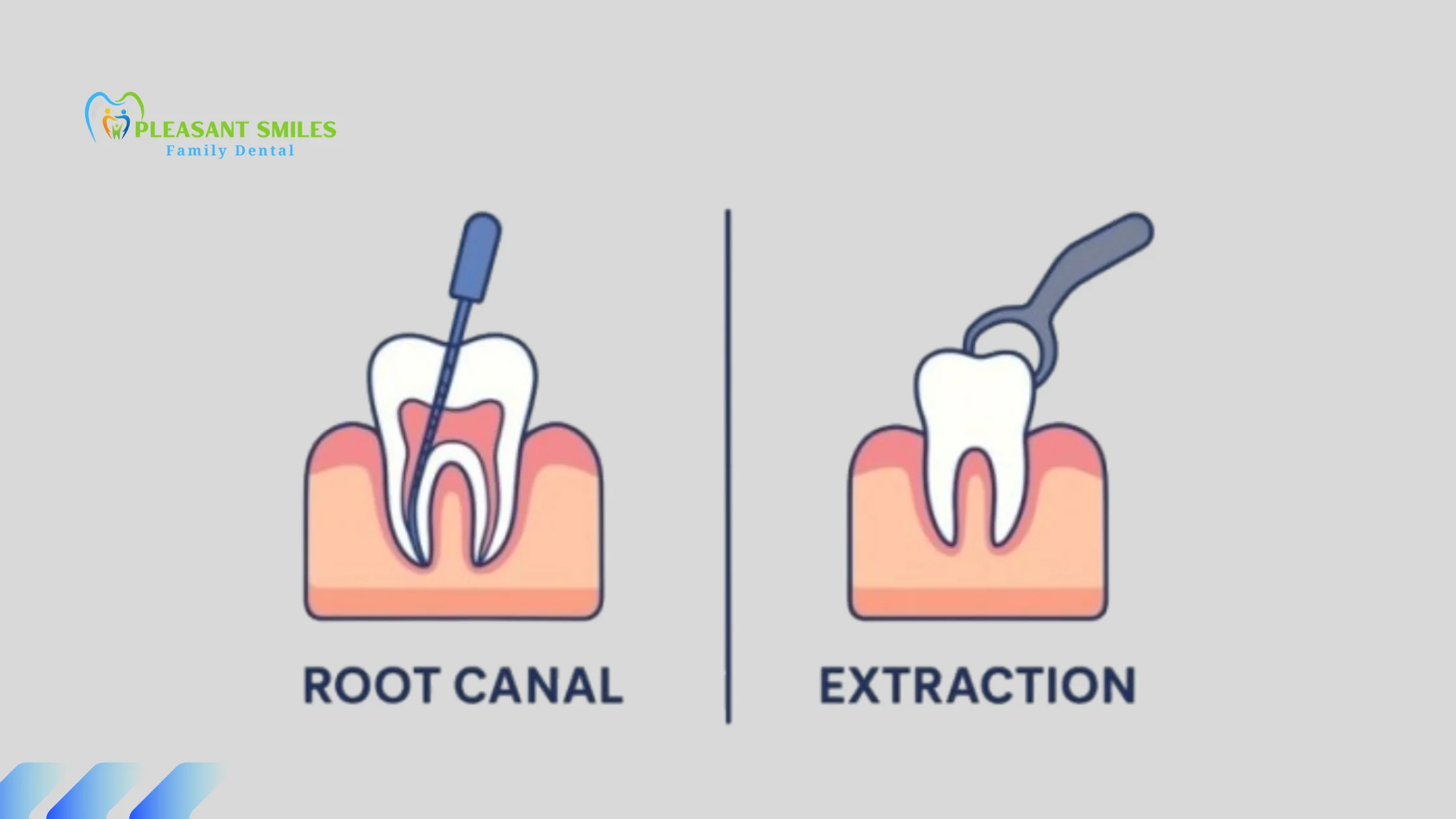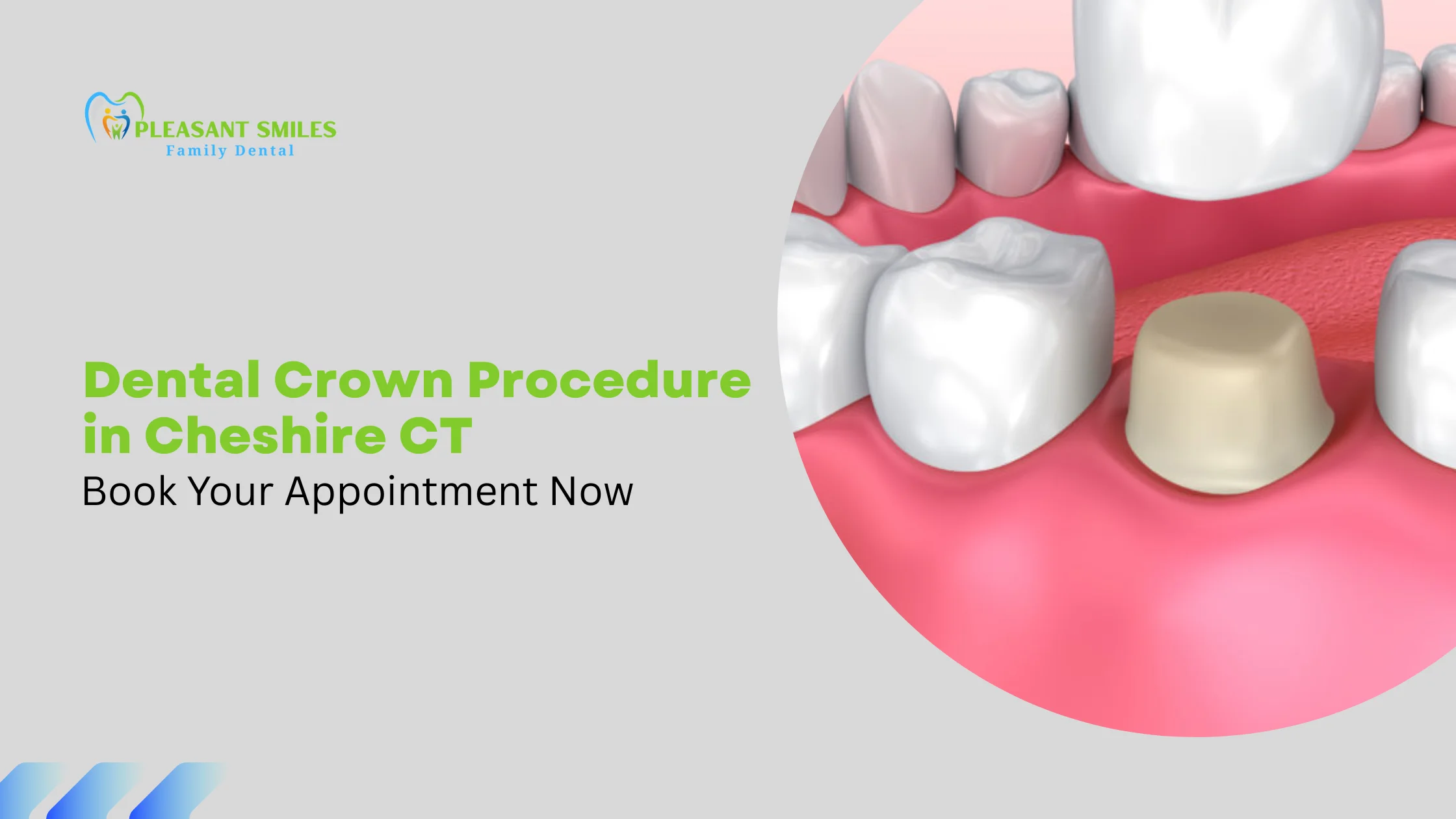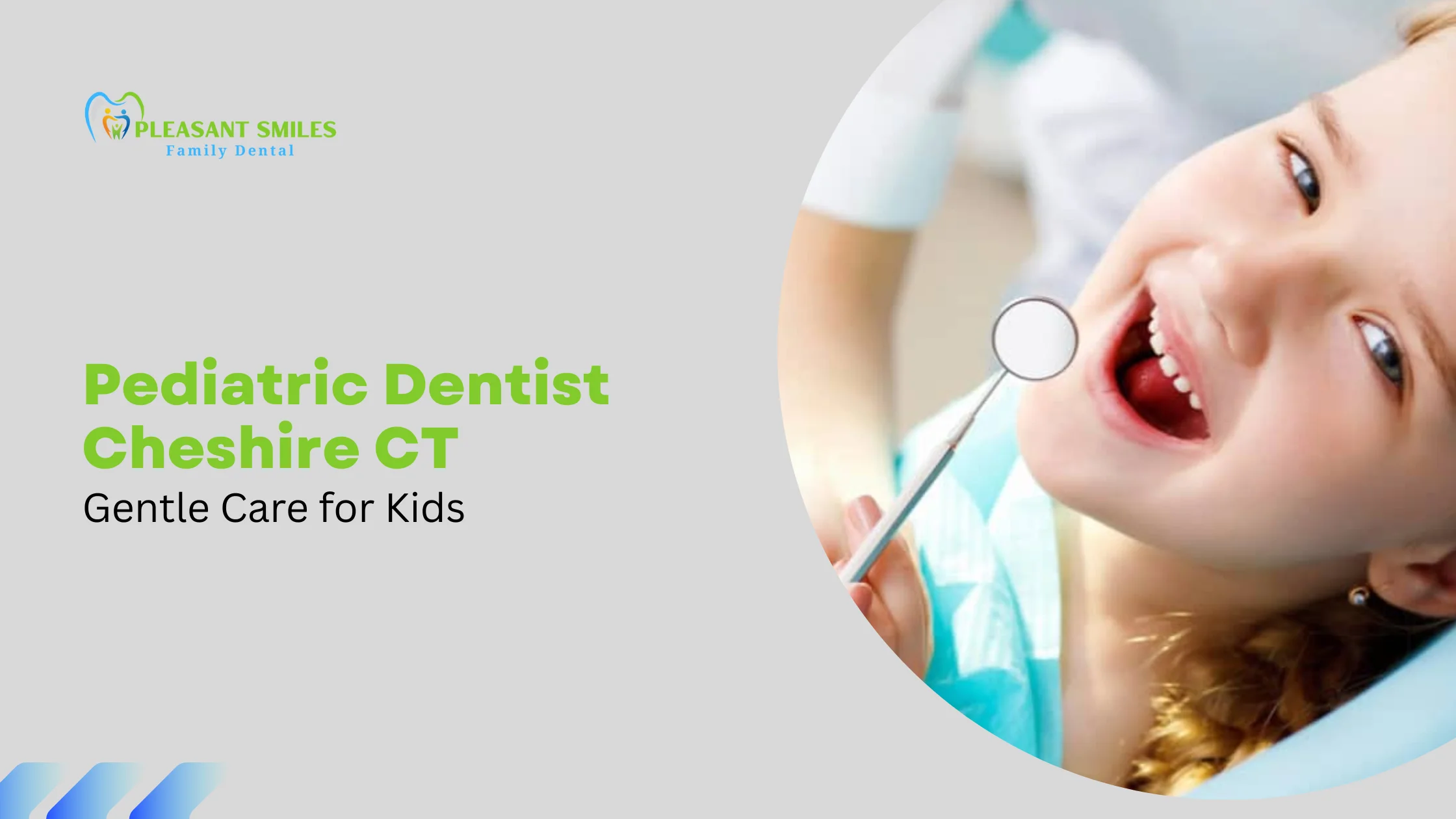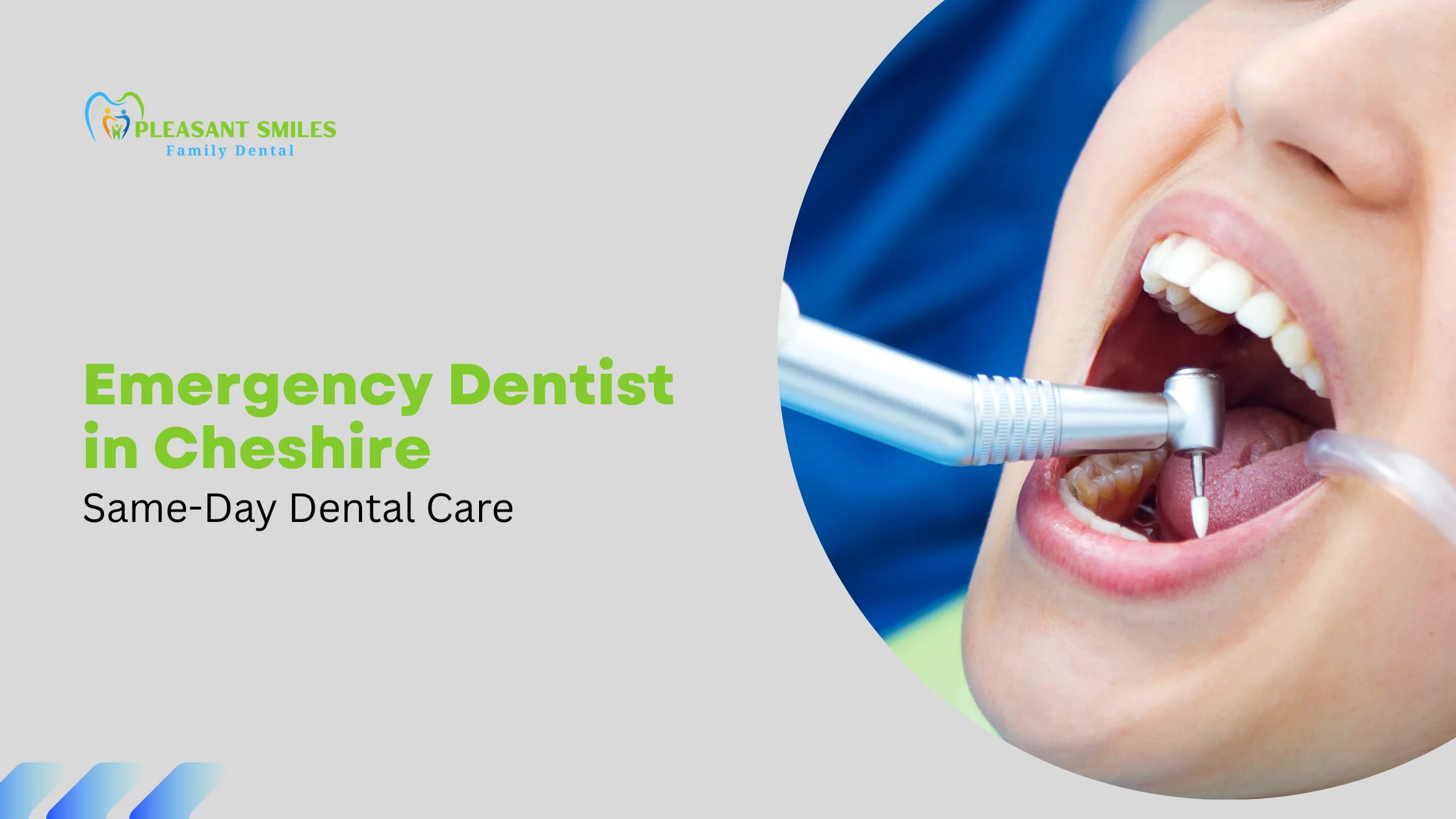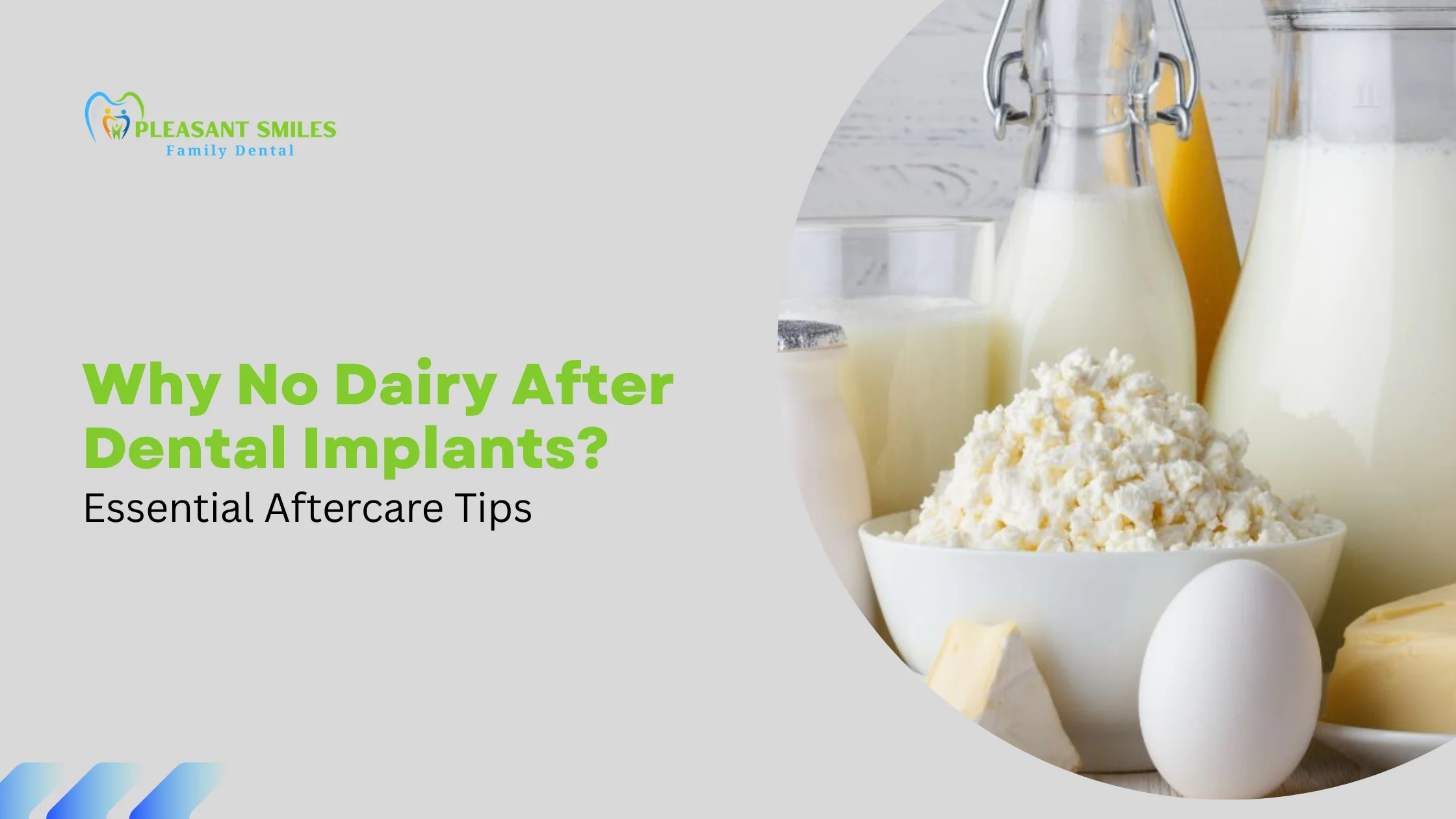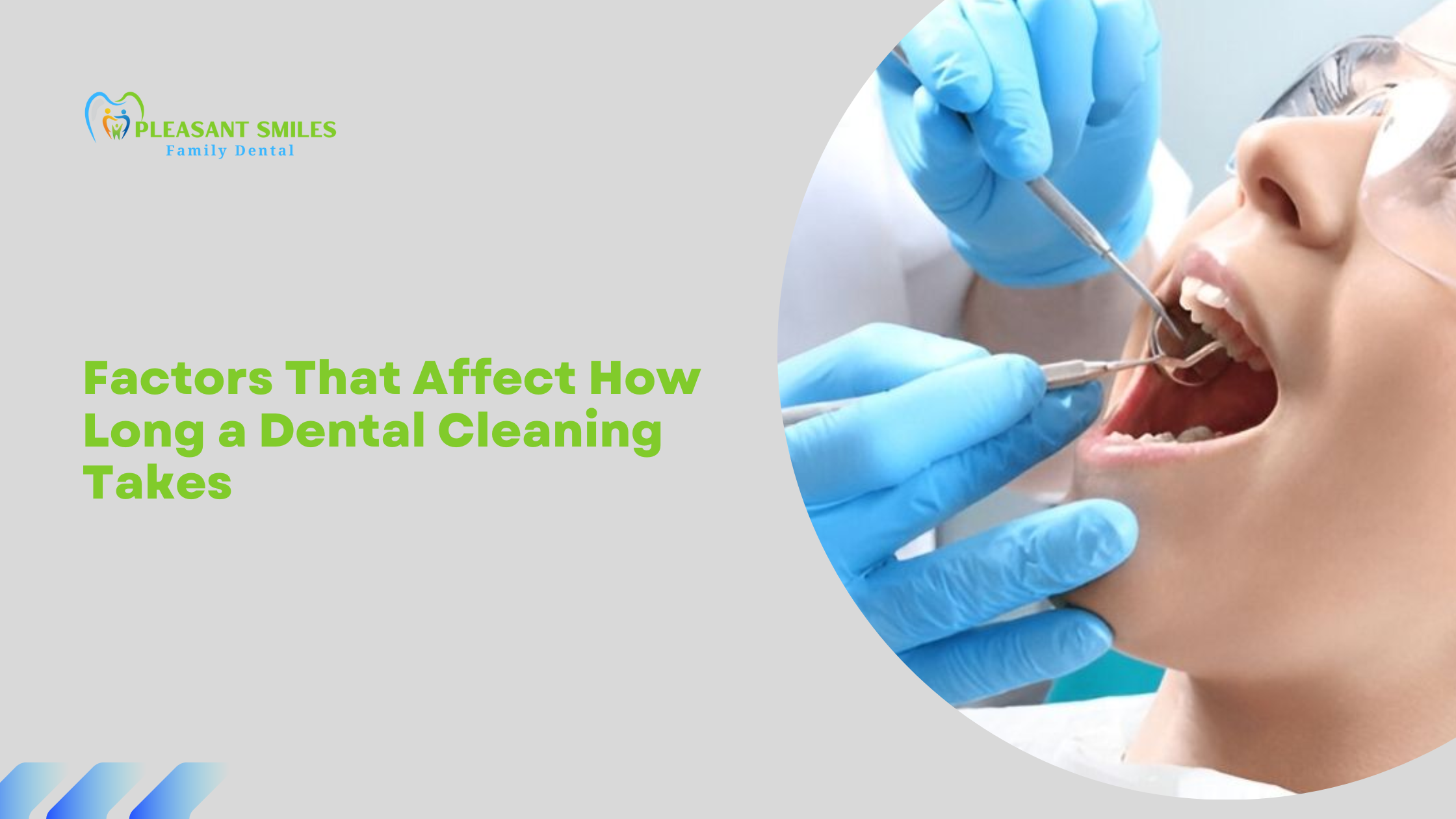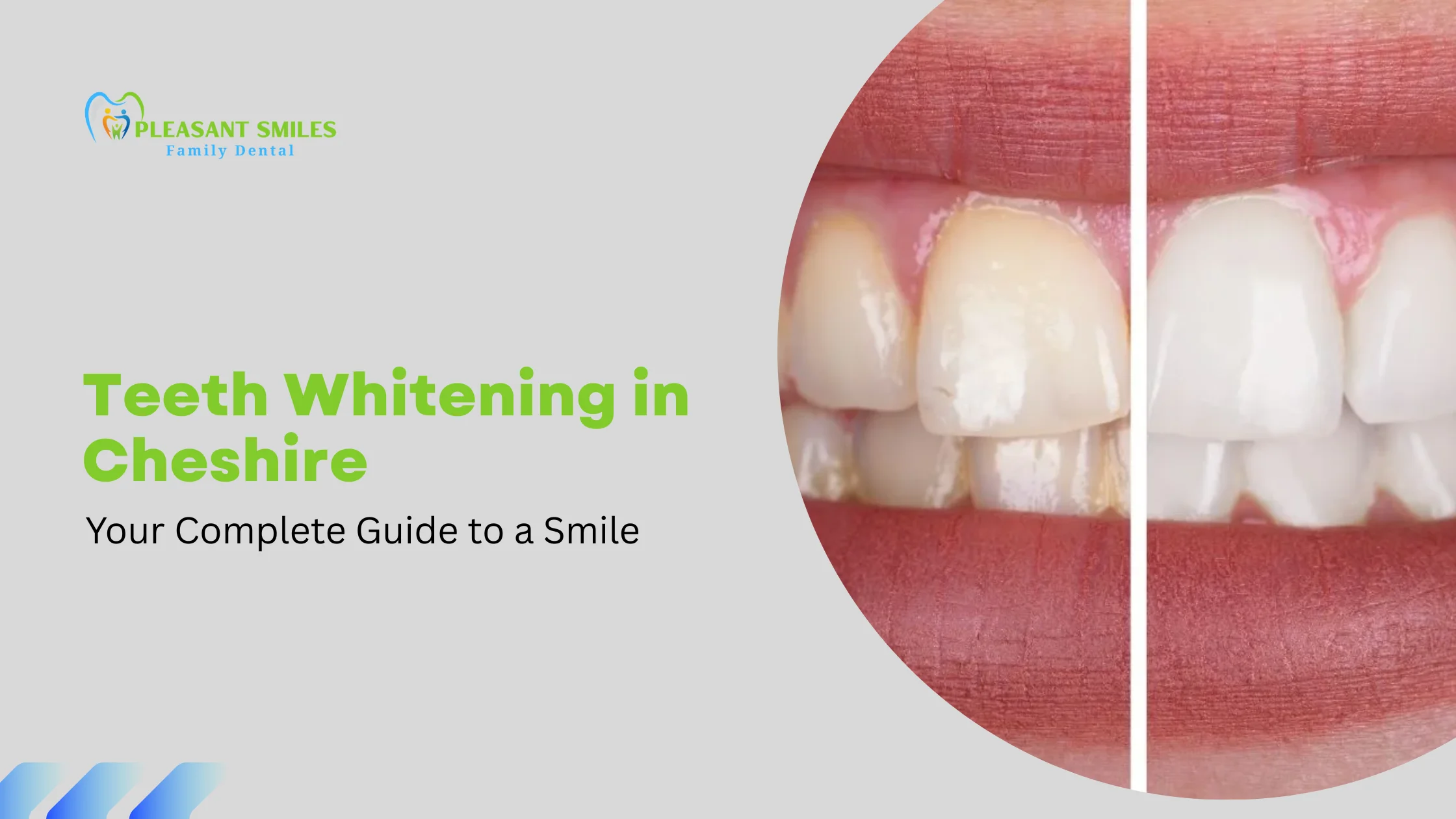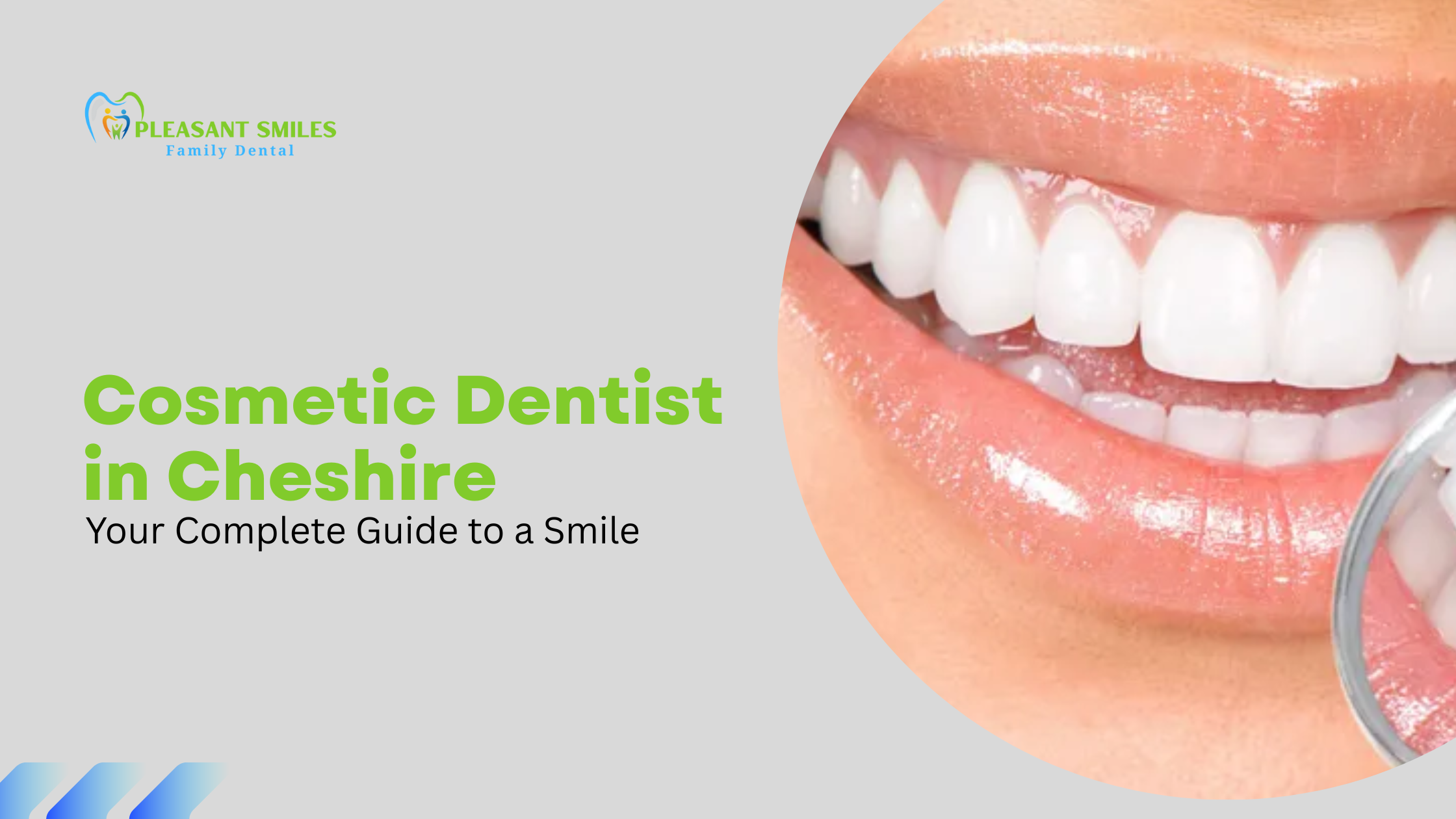Dental emergencies can happen without warning — a cracked tooth while eating, a throbbing toothache that keeps you up at night, or an accident that knocks out a tooth entirely. In moments like these, having a trusted emergency dentist in Cheshire, CT can make all the difference between saving a tooth and losing it.
At Pleasant Smiles Family Dental, we understand that dental pain can’t wait for regular office hours. That’s why Dr. Vijitha Bandla and her experienced team provide prompt, same-day emergency dental care for patients across Cheshire and nearby communities. Our goal is to relieve pain quickly, address the root cause of the issue, and help you return to comfort as soon as possible.
From treating sudden infections and abscesses to repairing broken crowns or restoring knocked-out teeth, we handle a full range of urgent dental problems using advanced technology and gentle, patient-focused care. We also know how stressful dental emergencies can feel — so every member of our team is trained to respond with empathy, clear communication, and efficient treatment planning.
When a dental crisis occurs, you shouldn’t have to search endlessly for help. Pleasant Smiles Family Dental keeps same-day emergency appointments available daily, ensuring that whether it’s early morning or late afternoon, you can reach a qualified dentist who’s ready to help.
If you’re experiencing severe dental pain, swelling, bleeding, or trauma, call our Cheshire dental office right away. Dr. Bandla will guide you on what to do next and ensure you get the care you need without delay.
What Is a Dental Emergency?
A dental emergency refers to any sudden oral health issue that causes severe pain, bleeding, infection, or trauma and requires immediate professional attention to prevent permanent damage or complications. Unlike routine dental problems, which can wait for a scheduled appointment, emergencies demand prompt treatment to protect the teeth, gums, and surrounding tissues — and, in some cases, your overall health.
According to the American Dental Association (ADA), a true dental emergency involves situations where delaying treatment could result in significant oral health deterioration or systemic infection. These issues often include severe toothaches, knocked-out teeth, cracked or fractured teeth exposing the nerve, uncontrolled bleeding after an injury or extraction, or signs of oral infection such as swelling in the face or jaw.
For example, if a tooth gets knocked out during an accident, seeking dental care within 30 to 60 minutes can often make the difference between saving and losing that tooth. Similarly, infections that cause swelling around the jaw or face may spread rapidly if untreated — in extreme cases, they can even become life-threatening when the infection reaches the bloodstream or airway.
Not all discomfort, however, qualifies as an emergency. A small chip, a minor sensitivity to cold, or a temporary gum irritation might feel uncomfortable but usually doesn’t require same-day attention. That’s why understanding the difference between urgent and non-urgent dental issues helps patients act quickly and appropriately.
At Pleasant Smiles Family Dental, Dr. Vijitha Bandla emphasizes that early evaluation is crucial. Even if you’re unsure whether your situation is an emergency, contacting a dentist immediately ensures the problem is accurately assessed. Many conditions that start small — such as untreated cavities or gum infections — can escalate into emergencies if ignored.
In essence, a dental emergency is any oral health problem that disrupts your daily life through pain, swelling, or trauma and risks long-term oral damage if not treated right away. Recognizing these signs early and seeking professional care can preserve your smile, prevent costly procedures later, and protect your overall well-being.
Common Dental Emergencies and Their Symptoms
Dental emergencies can occur unexpectedly — from biting into something hard to an accidental fall. Recognizing the signs early helps you respond the right way and get immediate care before the problem worsens. Below are the most common dental emergencies treated by Dr. Vijitha Bandla and her team at Pleasant Smiles Family Dental in Cheshire, CT, along with their warning symptoms and what they mean for your oral health.
1. Severe Toothache or Throbbing Pain
A persistent or intense toothache is one of the clearest signs of a dental emergency. It often indicates an underlying infection, an abscess, or deep tooth decay that has reached the nerve.
Common symptoms include: sharp or throbbing pain, sensitivity to temperature, swelling around the jaw, and difficulty chewing.
If left untreated, the infection can spread to the jawbone or bloodstream, leading to serious health risks. Prompt treatment — usually a root canal or drainage of the abscess — can quickly relieve pain and save the tooth.
2. Knocked-Out (Avulsed) Tooth
A knocked-out tooth is a true dental emergency that requires immediate action. According to the American Association of Endodontists, reimplantation is most successful when done within 30–60 minutes of the injury.
What to do: Gently rinse the tooth without scrubbing it, keep it moist in milk or saline, and bring it to the dental office right away.
At Pleasant Smiles Family Dental, Dr. Bandla’s team uses advanced preservation techniques to reattach the tooth if possible or replace it with dental implants if necessary.
3. Broken, Cracked, or Fractured Teeth
Teeth can crack or break from trauma, biting something hard, or untreated decay. Even a small crack can expose the inner nerve, causing pain and sensitivity.
Symptoms include: visible cracks, sharp edges, or pain when biting down.
Treatment depends on the severity — from bonding and crowns to emergency root canals if the pulp is exposed. Ignoring a fracture can lead to infection or tooth loss.
4. Lost or Dislodged Dental Filling or Crown
When a filling or crown falls out, it leaves the tooth unprotected and highly sensitive. This can quickly lead to pain, infection, or structural damage.
Temporary fix: You can use dental cement (available at pharmacies) to protect the area until you reach the dentist.
Professional care: Dr. Bandla ensures the tooth is cleaned, restored, and refitted with a durable crown or filling to prevent further complications.
5. Gum or Facial Swelling and Abscesses
Swelling in the gums, face, or jaw often indicates an infection that requires urgent attention.
Symptoms include: visible swelling, fever, tenderness, and sometimes a bad taste from pus drainage.
An abscess won’t heal on its own — it requires professional drainage and antibiotics. Left untreated, oral infections can spread and cause serious systemic issues. Dr. Vijitha Bandla and her team provide immediate infection control to relieve pain and prevent recurrence.
6. Soft Tissue Injuries (Gums, Cheeks, or Tongue)
Accidents can cause cuts or tears inside the mouth, leading to bleeding and pain.
First aid: Rinse gently with warm salt water and apply pressure with gauze to control bleeding. If bleeding persists after 10–15 minutes, seek emergency dental care immediately.
Dr. Bandla ensures that wounds are disinfected, sutured if necessary, and checked for any deeper damage to surrounding teeth or tissues.
7. Jaw Pain or Broken Jaw
Pain or difficulty moving the jaw may signal a fracture or dislocation. This can occur from accidents, sports injuries, or sudden trauma.
Symptoms include: swelling, difficulty closing the mouth, or misalignment of the teeth.
Immediate evaluation is crucial, as jaw injuries can affect your bite, breathing, and facial structure.
When to Visit an Emergency Dentist and When It Can Wait
Not every dental problem requires immediate emergency care, but knowing which situations demand urgent attention can prevent complications and save teeth. At Pleasant Smiles Family Dental in Cheshire, CT, Dr. Vijitha Bandla guides patients to recognize the difference between true emergencies and issues that can be scheduled for routine care.
Situations That Require Immediate Attention
- Severe Pain or Swelling
Persistent or throbbing tooth pain, especially when accompanied by swelling in the gums, face, or jaw, should be treated as an emergency. These symptoms often indicate infections or abscesses, which can spread rapidly and, in severe cases, affect your overall health. Immediate care ensures timely antibiotics, pain relief, and, if necessary, drainage or root canal treatment.
- Knocked-Out or Loose Teeth
A tooth that has been completely dislodged, partially knocked loose, or severely fractured needs urgent dental intervention. The earlier a dentist evaluates the injury — ideally within 30 to 60 minutes for knocked-out teeth — the higher the chance of saving the tooth and preventing permanent damage.
- Uncontrolled Bleeding or Trauma
Bleeding that does not stop with 10–15 minutes of firm pressure or injuries involving the jaw, lips, or soft tissues qualifies as a dental emergency. Immediate care ensures proper clotting, prevents infection, and identifies any underlying fractures or damage.
- Signs of Infection
Redness, warmth, swelling, pus drainage, fever, or difficulty swallowing may indicate a dental infection. Prompt evaluation and treatment are essential because untreated infections can spread to other parts of the head and neck, posing serious health risks.
Situations That Can Usually Wait for a Scheduled Appointment
While these issues can be uncomfortable, they typically do not require same-day intervention:
- Minor chips that do not expose the nerve
- Slight sensitivity to hot or cold foods
- Loose fillings or crowns without pain
- Mild gum irritation or bleeding from brushing
Even though these conditions can wait, it’s still important to schedule an appointment. Ignoring small problems can allow them to progress into emergencies over time.
Do We Handle After-Hours Emergencies? How to Get Care When the Office Is Closed
Dental emergencies often happen outside of normal office hours — late at night, early in the morning, or on weekends. At Pleasant Smiles Family Dental in Cheshire, CT, we understand that urgent dental issues can’t wait until the next business day. While our office strives to accommodate same-day emergencies during regular hours, we also provide guidance and resources for after-hours dental care.
After-Hours Options at Pleasant Smiles
While our clinic is not open 24/7, we have protocols in place to ensure that patients experiencing true dental emergencies receive timely assistance:
- On-Call Support: Patients can call our main office number to reach a member of our team. Our staff will triage the situation over the phone and provide guidance on pain management, temporary solutions, and immediate steps to prevent worsening of the condition.
- Scheduling the Earliest Possible Appointment: For injuries or severe pain occurring outside of normal hours, we reserve same-day or next-morning slots for patients in urgent need. This ensures that treatment begins as quickly as possible.
- Instructions for Stabilization at Home: We provide clear instructions for managing bleeding, swelling, or pain temporarily until the patient can be seen by Dr. Vijitha Bandla. These instructions follow ADA and AAE guidelines for safe at-home management.
When to Go to the Emergency Room
Certain dental emergencies require hospital-level care rather than waiting for a dentist:
- Severe facial trauma or jaw fractures
- Uncontrolled bleeding that does not stop after 10–15 minutes of firm pressure
- Signs of systemic infection, such as fever, difficulty breathing, or spreading swelling
- Severe injuries involving other parts of the face or head alongside dental trauma
In these situations, we advise patients to go directly to the nearest emergency room for immediate stabilization before follow-up dental care.
By providing clear instructions and rapid access to care, Pleasant Smiles Family Dental ensures that patients in Cheshire, CT, never face a dental emergency alone. Even outside office hours, our priority is to minimize pain, prevent infection, and guide you safely until professional treatment is available.
Diagnostics and Treatments We Offer for Dental Emergencies
When you arrive at Pleasant Smiles Family Dental with a dental emergency, the first priority is to assess the problem accurately and provide immediate relief. Dr. Vijitha Bandla and her team use advanced diagnostic tools and evidence-based treatment methods to ensure that every patient receives fast, effective, and safe care.
Step 1: Comprehensive Evaluation and Diagnostics
The emergency visit begins with a thorough evaluation:
- Medical and Dental History: Understanding your overall health, medications, and previous dental treatments helps prevent complications during urgent care.
- Visual Examination: Dr. Bandla carefully examines the affected teeth, gums, and surrounding tissues to identify fractures, decay, or infection.
- Imaging: Digital X-rays are used to detect hidden cracks, infections, or bone involvement. For complex cases, CBCT (cone-beam computed tomography) may be utilized to assess detailed tooth and jaw structure.
- Pulp Vitality Testing: When a tooth is severely injured, tests determine whether the nerve is still viable or if immediate root canal treatment is needed.
This step ensures that treatment is tailored to the specific emergency, rather than using temporary measures that may fail later.
Step 2: Immediate Pain Relief and Stabilization
Once the evaluation is complete, the next priority is pain control and stabilization:
- Local anesthesia to numb the area and allow comfortable treatment
- Ice or cold compresses for swelling
- Temporary splints or bonding for fractured or loose teeth
- Debridement and cleaning for wounds or abscesses to reduce infection risk
The goal is to relieve pain immediately while protecting the tooth or affected area until definitive treatment is completed.
Step 3: Emergency Treatments We Provide
Depending on the type of emergency, Dr. Bandla offers a range of same-day procedures, including:
- Reimplantation of Knocked-Out Teeth: Using best-practice techniques to preserve tooth viability.
- Root Canal Therapy for Infected or Damaged Nerves: Rapid treatment to save teeth affected by trauma or abscess.
- Incision and Drainage of Abscesses: Controlling infection and reducing swelling.
- Emergency Extractions: When a tooth cannot be saved, removal is performed safely and efficiently.
- Temporary or Permanent Crown/Filling Replacement: Protecting damaged teeth and restoring functionality.
- Soft Tissue Repair: Suturing cuts or injuries to the gums, tongue, or lips.
- Sedation and Comfort Options: For anxious patients, mild sedation or calming techniques may be offered to ensure stress-free treatment.
Step 4: Post-Treatment Instructions
After immediate care, patients receive clear, written instructions on:
- Pain management and recommended medications
- Diet and chewing precautions
- Signs of complications to watch for
- Follow-up appointments for definitive care (e.g., final crown placement, root canal completion)
By combining advanced diagnostics, rapid pain relief, and definitive emergency treatment, Pleasant Smiles Family Dental ensures that patients leave the office safe, comfortable, and on the path to full recovery.
Costs, Insurance, and Financing Options for Emergency Dental Care
Dental emergencies can be stressful enough without worrying about unexpected costs. At Pleasant Smiles Family Dental, we strive to make emergency care accessible, transparent, and affordable for all patients. Understanding your options ahead of time helps you make informed decisions and ensures you receive timely treatment without unnecessary delays.
Emergency Dental Care Costs
The cost of emergency dental treatment varies depending on the type and complexity of the issue:
- Minor procedures such as replacing a lost filling or providing temporary pain relief may be relatively low-cost.
- Moderate procedures like treating a cracked tooth, performing an emergency root canal, or repairing a dislodged crown generally require more time and materials.
- Complex treatments such as reimplanting knocked-out teeth, draining severe abscesses, or emergency extractions may be higher due to the specialized care and equipment involved.
At Pleasant Smiles, we provide a clear estimate before treatment begins, so you know exactly what to expect financially.
Insurance Coverage
Most dental insurance plans cover emergency procedures, though coverage levels may vary. Our team can:
- Verify your insurance benefits before your appointment
- File claims on your behalf to maximize coverage
- Explain what portion of the emergency care will be your responsibility
Even if your insurance plan does not fully cover certain procedures, our staff will guide you through available options to minimize out-of-pocket costs.
Flexible Financing and Payment Plans
For patients without insurance or those facing high-cost emergencies, Pleasant Smiles Family Dental offers flexible payment options:
- CareCredit Financing: Allows you to pay for treatment over time with low or no interest plans.
- In-House Payment Plans: Custom payment arrangements can be discussed directly with our office staff to fit your budget.
- Transparent Billing: No hidden fees, with all costs explained before treatment begins.
Peace of Mind During a Dental Emergency
Our goal is to ensure that financial concerns never prevent you from getting urgent care. Patients in Cheshire, CT, can trust that Dr. Vijitha Bandla and her team will provide both high-quality treatment and guidance on navigating costs, insurance, and financing — allowing you to focus on healing and comfort during a stressful time.
Why Choose Pleasant Smiles Family Dental for Your Emergency Care
When a dental emergency strikes, you need more than just quick treatment — you need a dentist you can trust, a team that understands your concerns, and a clinic equipped to provide comprehensive, evidence-based care. At Pleasant Smiles Family Dental, Dr. Vijitha Bandla and her staff combine expertise, compassion, and modern technology to ensure every patient receives the best possible care during dental emergencies.
Expertise You Can Rely On
Dr. Vijitha Bandla is a highly trained emergency dentist with years of experience in managing urgent dental issues, from knocked-out teeth and severe infections to complex trauma cases. Her approach is grounded in the latest clinical guidelines from the American Dental Association (ADA) and the American Association of Endodontists (AAE), ensuring safe, effective, and evidence-based care. Patients can be confident that their dental emergency is being managed by a professional who understands both the science of dentistry and the stress of urgent situations.
Patient-Centered Care
At Pleasant Smiles, every emergency patient is treated with empathy and respect. The team prioritizes clear communication, explaining each step of the treatment, potential outcomes, and aftercare instructions. This approach reduces anxiety, helps patients feel informed, and ensures they can make decisions confidently, even under stressful circumstances.
Advanced Technology and Treatment Options
Our clinic is equipped with modern dental technology, including:
- Digital X-rays and CBCT scans for accurate diagnosis
- Advanced sterilization protocols for patient safety
- State-of-the-art emergency dental tools for precise treatment
This technology allows Dr. Bandla to provide efficient, minimally invasive procedures, which are critical during emergencies where time and accuracy matter.
Local Trust and Community Commitment
Being a part of the Cheshire, CT community, Pleasant Smiles Family Dental is committed to helping local families maintain their oral health. Our team understands the unique needs of the community and strives to provide accessible, reliable emergency care. Many patients return not only for emergencies but also for ongoing dental care because of the trust, professionalism, and personalized attention they receive.
Comprehensive Follow-Up Care
Emergency treatment is only the first step. Dr. Bandla ensures that each patient receives a customized follow-up plan, including definitive restorations, preventive care, and ongoing monitoring to prevent future emergencies. This approach aligns with the highest standards of dental care, emphasizing long-term oral health rather than just temporary relief.
Choosing Pleasant Smiles Family Dental means choosing a clinic that combines expert skill, compassionate care, and state-of-the-art technology, providing peace of mind when dental emergencies happen.
Tips for Maintaining Healthy Teeth and Gums
While accidents can happen, many dental emergencies are preventable with proper oral care, lifestyle habits, and regular dental checkups. At Pleasant Smiles Family Dental, Dr. Vijitha Bandla emphasizes prevention as the best strategy to avoid pain, costly procedures, and emergency visits.
1. Maintain Consistent Oral Hygiene
- Brush your teeth twice daily with fluoride toothpaste.
- Floss at least once a day to remove plaque and debris between teeth.
- Use an antiseptic mouthwash to reduce bacteria and protect gums.
Good oral hygiene prevents cavities, infections, and gum disease, which are common triggers for emergency dental problems.
2. Protect Your Teeth During Sports and Physical Activities
- Wear a custom-fitted mouthguard when playing contact sports or activities with a risk of facial injury.
- Avoid chewing on hard objects such as ice, pens, or popcorn kernels, which can crack teeth.
These measures help reduce the risk of broken, chipped, or knocked-out teeth, one of the most common dental emergencies.
3. Schedule Regular Dental Checkups
- Visit the dentist every six months for cleanings and examinations.
- Early detection of decay, gum disease, or weakened teeth allows preventive treatment before problems become emergencies.
Dr. Vijitha Bandla uses advanced diagnostics during routine checkups to identify potential risks and take proactive measures.
4. Monitor Your Oral Health and Act Early
- Pay attention to sensitivity, swelling, or discoloration in teeth and gums.
- Don’t delay treatment for minor pain or loose restorations; what starts as a small problem can escalate into a severe emergency if ignored.
Prompt care ensures issues are treated before they develop into urgent, painful situations.
5. Adopt Healthy Lifestyle Habits
- Limit sugary snacks and drinks to reduce the risk of cavities.
- Stay hydrated and chew sugar-free gum to stimulate saliva, which naturally protects teeth.
- Avoid tobacco use, which increases the risk of gum disease and oral infections.
By combining proper oral hygiene, protective habits, and routine dental visits, patients can significantly reduce the likelihood of dental emergencies and maintain a healthy, strong smile for life.
Conclusion
Dental emergencies can strike at any time, and when they do, having a trusted emergency dentist in Cheshire can make all the difference. At Pleasant Smiles Family Dental, Dr. Vijitha Bandla and her team are committed to providing fast, effective, and compassionate care for patients facing urgent dental issues.
From severe toothaches and knocked-out teeth to broken crowns and infections, our clinic offers same-day emergency appointments, advanced diagnostics, and expert treatment to relieve pain, prevent further damage, and restore your smile. We also provide guidance for after-hours emergencies, flexible payment options, and clear post-treatment instructions — ensuring that your emergency is handled safely and efficiently.
Remember, early action is crucial. Don’t wait or try to manage serious dental problems on your own. Contact Pleasant Smiles Family Dental immediately if you experience:
- Severe tooth pain or swelling
- Knocked-out, broken, or loose teeth
- Persistent bleeding or trauma to the mouth
- Signs of infection, such as pus, fever, or facial swelling
By choosing Dr. Vijitha Bandla and our team, you’re choosing a clinic that combines expertise, advanced technology, and patient-centered care to handle dental emergencies with precision and compassion.
Call Pleasant Smiles Family Dental today or book an emergency appointment online — and get the fast, reliable care you need to protect your teeth, your smile, and your health.


